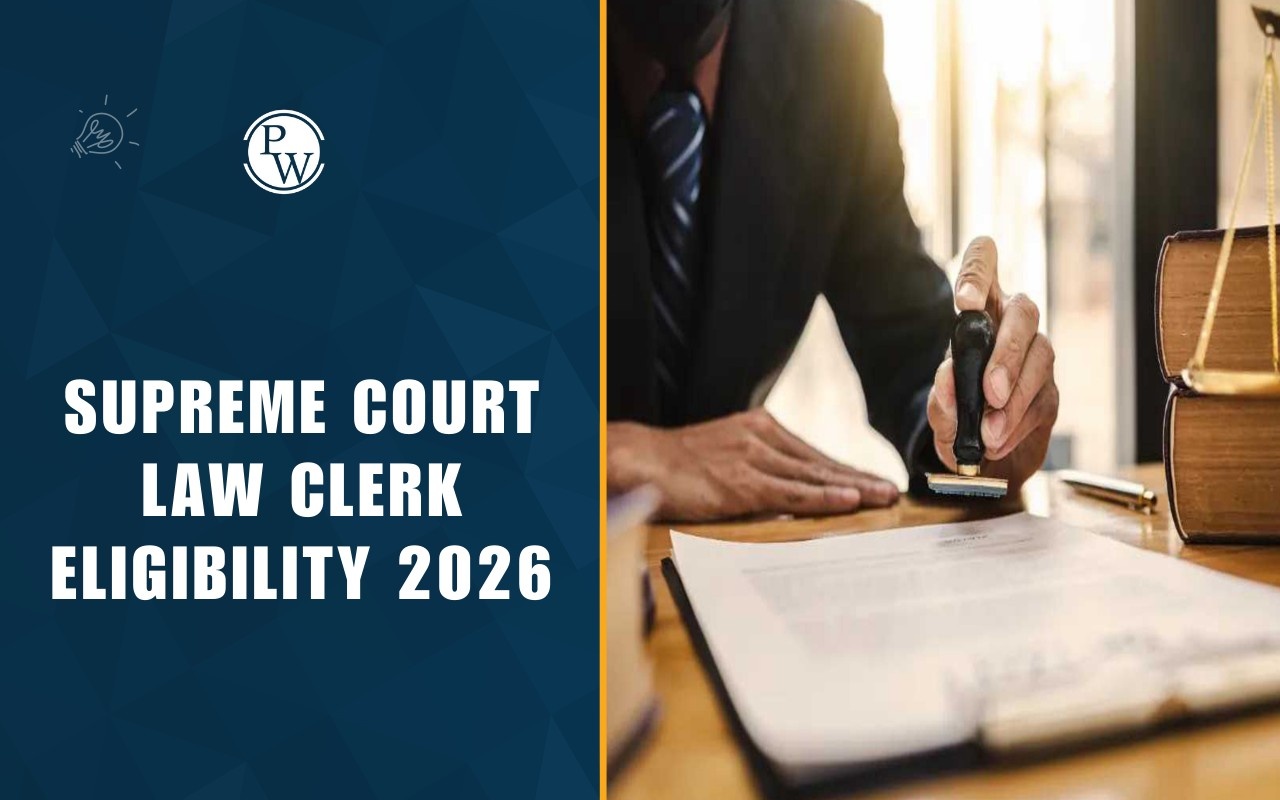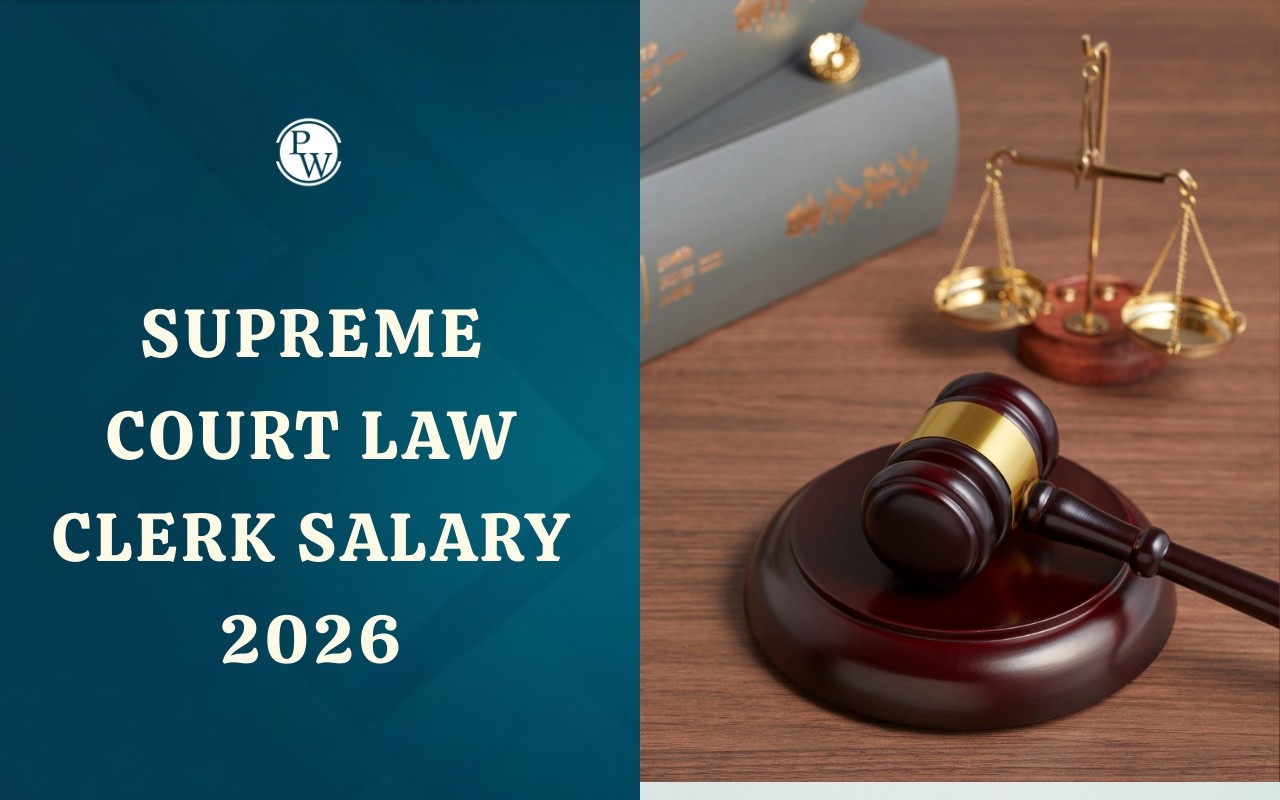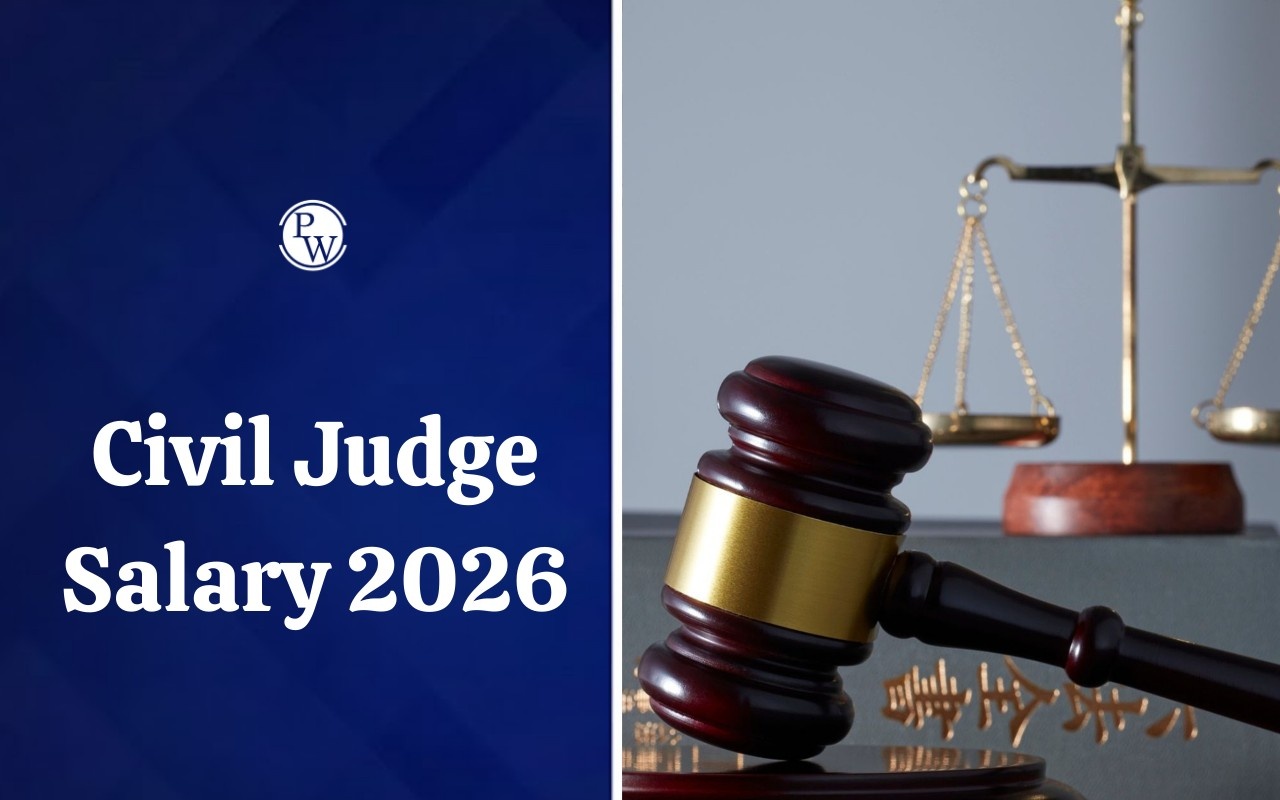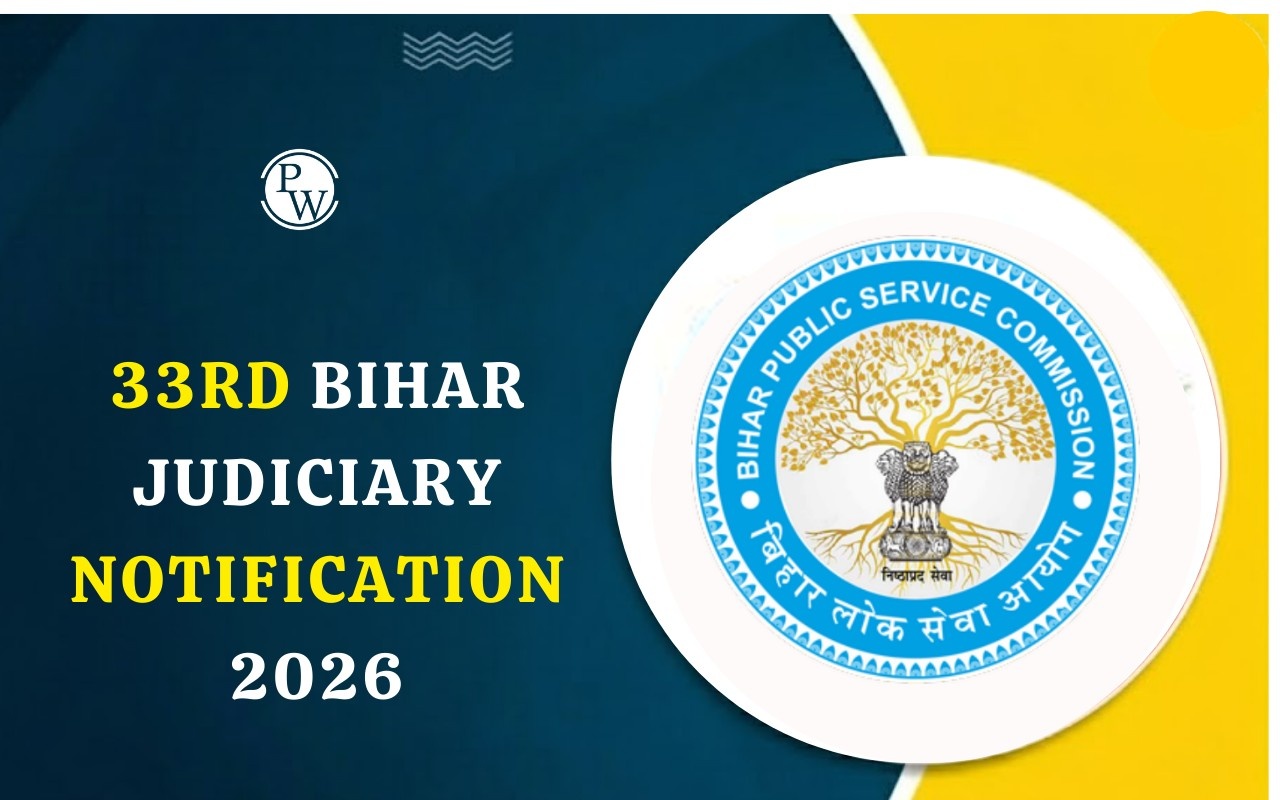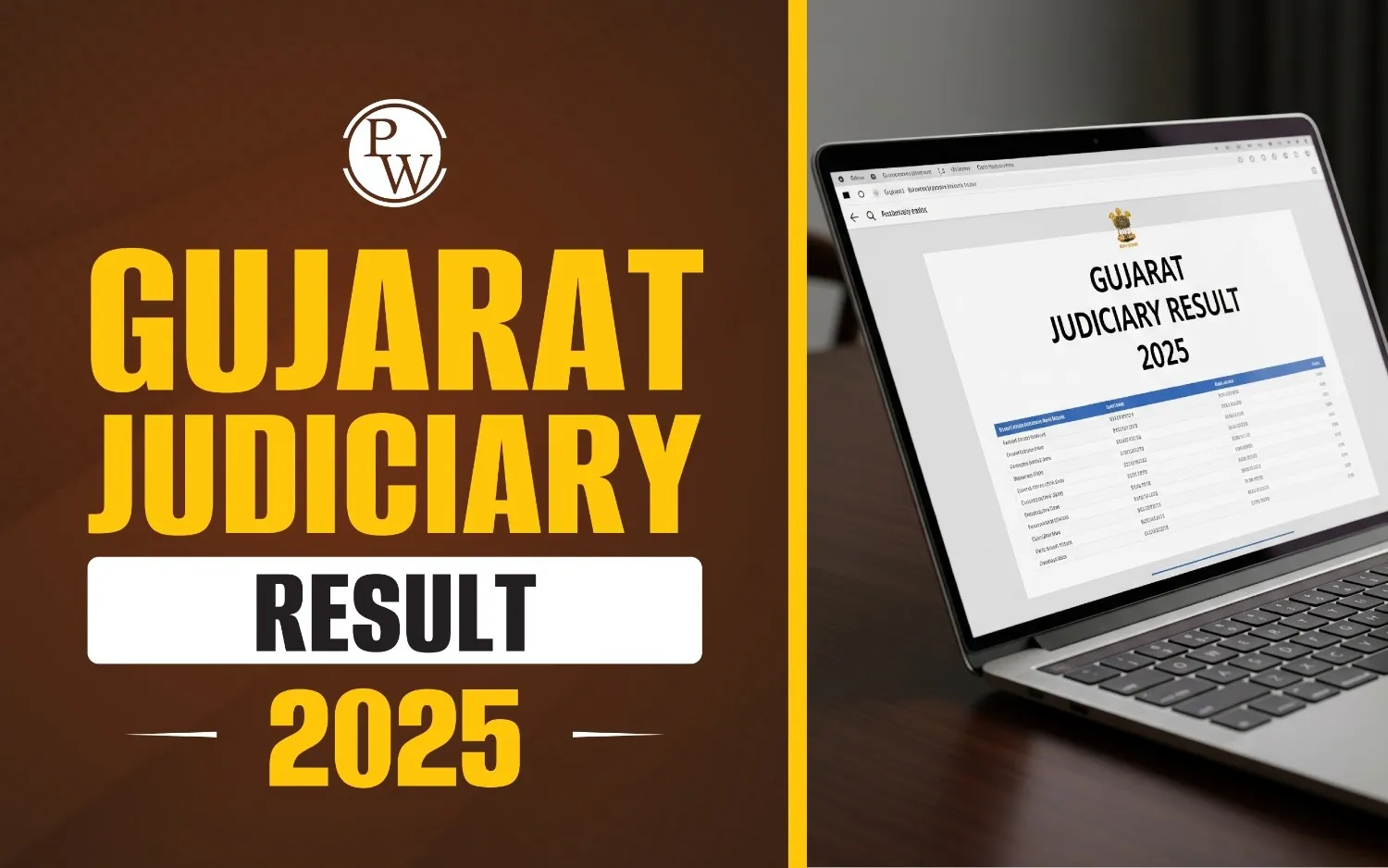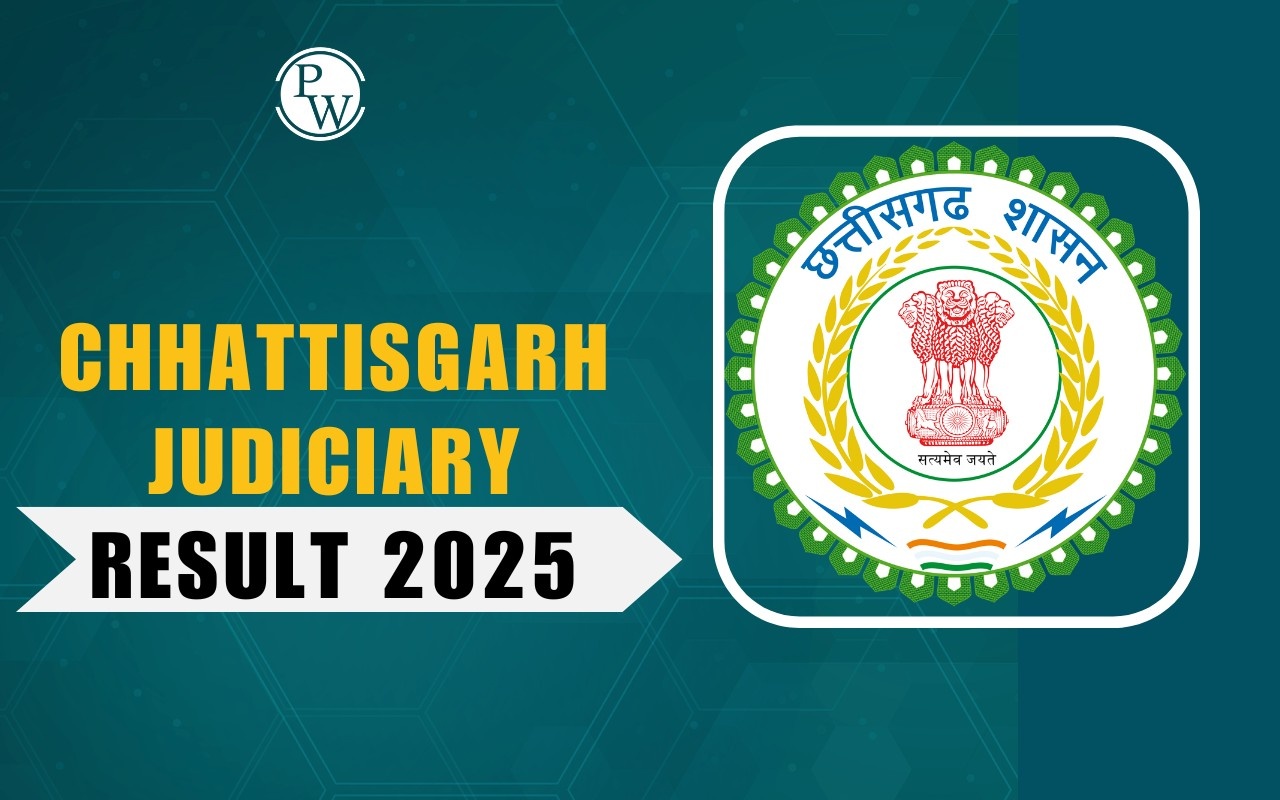
UP PCS J Salary 2025: The Higher Judiciary in Uttar Pradesh announced vacancies for the position of Advocate, with 83 openings in 2024. Uttar Pradesh's legal system continues to play a key role in maintaining law and order while ensuring justice. Judges in this system interpret laws and make impactful decisions that affect citizens' lives. This esteemed position demands significant knowledge and expertise. Below is the updated UP PCS J Salary 2025 overview, salary structure, allowances, job responsibilities, and benefits associated with the UP PCS J position in 2025.
UP PCS J Salary 2025 7th Pay Scale Structure
The salary for judges in Uttar Pradesh follows the 7th Pay Commission guidelines, which have resulted in increases in salary and allowances. Initially, civil judges in Uttar Pradesh earned around ₹56,100 per month in 2025. This includes a basic pay of ₹27,700, along with allowances such as dearness allowance (DA), house rent allowance (HRA), travel allowance (TA), and others. District judges receive even higher compensation, reaching up to ₹2.10 lakh per month .UP PCS J Salary 2025 Job Profile
The job profile of a UP PCS J judge is quite complex and demanding. Judges in Uttar Pradesh are responsible for interpreting laws, presiding over cases, and ensuring justice is served. They work in a high-pressure environment and need a strong understanding of the legal system.
In addition to their judicial duties, UP PCS J judges also handle administrative tasks such as managing court proceedings, maintaining records, and ensuring the legal system operates smoothly. They deal with numerous cases and make decisions that impact people's lives.
UP PCS J In Hand Salary 2025
The in-hand salary for UP PCS J judges in 2025 ranges from ₹28,000 to ₹45,000 per month , reflecting the critical nature of the role. This includes allowances for medical benefits, HRA, DA, and TA. Candidates must successfully complete a probationary period before permanent appointment to the role.UP PCS J Salary 2025 Structure
The UP PCS J salary structure in 2025 offers a lucrative package that reflects the importance of judicial roles. It includes a mix of basic pay and allowances such as Dearness Allowance (DA), House Rent Allowance (HRA), and Travel Allowance (TA). High Court judges earn between ₹2.30 lakh to ₹2.55 lakh per month, while Subordinate Court judges earn ₹46,000 to ₹1.55 lakh per month. Below is a detailed breakdown of the salary components:| Component | High Court Judges | Subordinate Court Judges |
|---|---|---|
| Basic Pay | ₹1,44,200 | ₹27,700 – ₹44,770 |
| Dearness Allowance (DA) | ₹50,470 – ₹59,340 | ₹10,000 – ₹20,000 |
| House Rent Allowance (HRA) | ₹20,000 – ₹30,000 | ₹8,000 – ₹12,000 |
| Travel Allowance (TA) | ₹10,000 – ₹15,000 | ₹5,000 – ₹8,000 |
| Other Perks | ₹5,000 – ₹6,500 | ₹3,000 – ₹4,500 |
| Total Monthly Salary | ₹2.30 lakh – ₹2.55 lakh | ₹46,000 – ₹1.55 lakh |
UP PCS J Salary 2025 Career Growth & Promotions
Once a candidate has been officially chosen to serve as a UPPSC Civil Judge, their career will likely experience significant growth. Their performance is evaluated periodically. The promotion is granted with a salary increment based on performance, experience, and seniority. The board conducts internal promotion exams on a regular basis to advance the ranks of deserving candidates. Based on their performance, candidates get promotions to higher posts, below is a detailed overview of the promotion hierarchy:
| Rank/Designation | Promotion Criteria | Responsibilities |
|---|---|---|
| Civil Judge (Junior Division) | Entry-level position upon selection | Presides over civil cases, ensures proper case management, and delivers judgments on minor civil disputes. |
| Civil Judge (Senior Division) | Based on seniority and performance | Handles more complex cases, supervises Junior Division courts, and oversees case proceedings. |
| District Judge | Promotion via exams or direct recruitment | Manages district-level courts, adjudicates major civil and criminal cases, and supervises lower courts. |
| Principal District Judge | Based on experience and exemplary performance | Heads district judiciary, ensure efficient operations, and mentors subordinate judges. |
| High Court Judge | Nominated by the High Court or Supreme Court Collegium | Reviews appeals from lower courts, interprets constitutional matters, and presides over critical cases. |
| Chief Justice (High Court) | Appointed based on seniority and merit | Leads the High Court, administers judicial policies, and oversees state judicial operations. |
UP PCS J Salary 2025 Annual Package
The annual package for UP PCS J judges highlights the critical role of judges in the judiciary and includes a combination of basic pay, allowances, and perks. High Court judges receive a package ranging from ₹27.6 lahks to ₹30.6 lahks annually, while Subordinate Court judges earn between ₹5.52 lakhs to ₹18.6 lakhs per year. These figures include benefits like housing, medical facilities, travel allowances, and pension contributions, ensuring a rewarding compensation structure.| Position | Annual Package Range (Approx.) |
|---|---|
| High Court Judges | ₹27.6 lakh to ₹30.6 lakh |
| Subordinate Court Judges | ₹5.52 lakh to ₹18.6 lakh |
UP PCS J Salary 2025 Perks And Benefits
The judicial system in Uttar Pradesh is one of the biggest in India, with a High Court and many lower courts across the state. It's responsible for ensuring justice and following the law. Besides their salaries, judges in Uttar Pradesh also get extra benefits. They can either get free housing or an allowance for rent, which can be quite generous. They also get a car and a driver, making it easier for them to get to work. There are many other perks and benefits judges in Uttar Pradesh receive. Apart from the salary, judges in Uttar Pradesh receive various perks and benefits:
| Category | Details |
|---|---|
| UP PCS J Salary | High Court judges: Rs. 2.25 lakh to Rs. 2.50 lakh per month Subordinate court judges: Rs. 45,000 to Rs. 1.50 lakh per month |
| Housing | Accommodations like government bungalows or quarters near the court, which are well-maintained |
| Medical Facilities | Judges and their families get medical facilities at government hospitals and dispensaries. They also have health insurance to cover medical expenses. |
| Travel Allowance | Judges get travel allowances for official tours and visits, covering airfare, train fare, and related expenses. |
| Security | Judges receive security both inside and outside the court premises, including personal security officers for their safety. |
| Pension | After retirement, judges receive a pension based on their years of service and last drawn salary. |
| Staff | Judges are provided with a team of staff members, including stenographers, clerks, peons, and other support staff. |
UP PCS J Salary 2025 FAQs
What is the in-hand salary for UP PCS J judges in 2025?
How does the 7th Pay Commission affect UP PCS J Salary 2025?
What perks are included in the UP PCS J Salary 2025 package?
Are there promotional exams for UP PCS J 2025 judges?
What is the annual package for a High Court judge in 2025?
What is the starting salary for a Civil Judge in Uttar Pradesh?

